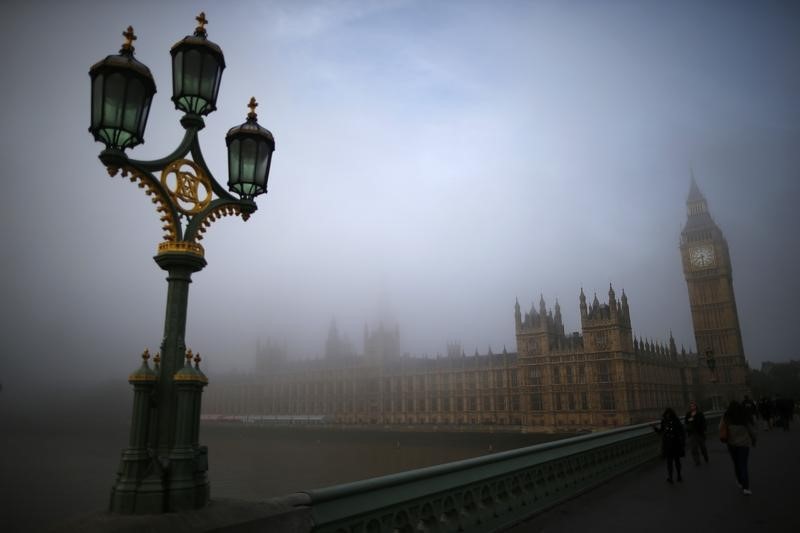(Bloomberg) -- Investors are ramping up pro-growth trades across U.K. stocks and bonds as a landslide Tory party victory paves the way for a Brexit deal after years of political gridlock.
In Rotterdam, Robeco’s co-head of global macro fixed income Jamie Stuttard is talking up risk-on exposures such as bank debt and those that profit from a steeper government yield curve. In Paris, CPR Asset Management strategist Bastien Drut is considering a return to sterling assets. Arbuthnot Latham in London sees FTSE 250 stocks as a “screaming buy,” according to its co-chief investment officer Gregory Perdon.
“U.K. markets have been haunted by uncertainty for several years now but that all changed last night,” Perdon said. “Markets love clear mandates and that’s what we got.”
Prime Minister Boris Johnson’s Conservative Party is poised for its biggest majority since 1987 under Margaret Thatcher. That bloc of voting support in Parliament gives Johnson a free rein to take Britain out of the European Union in January, breaking the legislative impasse.
Sterling rose by the most since 2017 at one point while stocks and bond yields surged, on expectations that political stability and fiscal stimulus will spur growth and pent-up investment.
“All these years of coalition politics, knife-edge politics -- that era is over,” said Stuttard at Robeco. “You can therefore have some flight-to-quality unwind in the Gilt market.”
The pro-growth bet for Stuttard’s team is being long two-year gilts against 10- and 30-year maturities. He’s also considering returning to a long position in sterling versus the euro. “The big trade for us is a steepener and that’s working for us this morning,” Stuttard said.
Improved investor confidence and a still-cheap currency could fuel more overseas direct investments including buying of London property, he suggests.
While U.K. domestic shares have surged, large-caps listed in the country -- which mostly make money overseas -- have bucked a long-standing negative correlation with the pound to rally in tandem. They were also boosted by a brighter trade outlook aiding cyclical sectors including banks and commodities.
There’s plenty of skepticism among those who say the Brexit saga is only just entering another chapter.
Despite his Parliamentary majority, Johnson still has to contend with hard-liners in his party who are willing to give up EU trading ties to exert greater control on labor and environmental standards. This faction is likely to push for a clean break at the end of next year. A big majority could allow him to cut a deal that keeps the U.K. more closely aligned with the single market.
“The road is full of pitfalls,” said Didier Borowski, the head of macroeconomic research at Amundi, who prefers small, domestically-focused stocks and sees only “short-term relief” for U.K. markets.
Going into the Thursday vote, global funds remain decidedly underweight on U.K. equities, according to Bank of America Corp (NYSE:BAC).’s monthly fund manager survey. Their allocation has slipped since the Brexit vote, reaching the lowest since at least 1999 at one point earlier last year.
“As of this morning, the British markets are back on the map of international investors,” Arbuthnot’s Perdon said.
